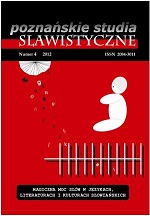Sličnosti i razlike u Wittgensteinovom i Derridaovom shvaćanju jezika kao djelovanja
Similarities and Differences in Wittgenstein and Derrida’s Notion of Language as Action
Author(s): Kristina Peternai AndrićSubject(s): Language and Literature Studies
Published by: Uniwersytet Adama Mickiewicza
Keywords: J. Derrida; L. Wittgenstein; J.L. Austin; language; deconstruction; language games; performative
Summary/Abstract: This research paper offers a comparison of the concepts of language as action presented by J. Derrida and L.Wittgenstein, including the concept of „performative” by J.L. Austin. The conclusion is that they maintain a non-representational character of language. Relationship between sign and referent is arbitrary and signs can not have a direct reference to independent objects; rather they produce meaning through relationships with other signers. In social practice, through the use of „language games”, meaning can be stabilized and systematised by the habitual use of signs; however, this stabilization of meaning is always provisional. Regardless of the differences in the approaches by Wittgenstein and Derrida, in the end is turns out that their mutual similarities are more important. The concept of language derived from their theories has a significant role in the understanding of self and identity, which leads to a discursive-performative conception of the formation of identity. Also, some common arguments and theoretical apparatus by Wittgenstein and Derrida may contribute to a new way of thinking about democratic politics.
Journal: Poznańskie Studia Slawistyczne
- Issue Year: 2013
- Issue No: 04
- Page Range: 127-138
- Page Count: 12
- Language: Croatian

